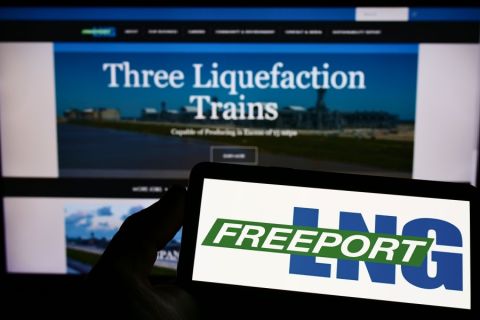Merrill Lynch & Co.'s global oil research team expects emerging market oil stocks to perform well during the next 12 months as a result of a positive oil price environment, an improving outlook for refining margins and a new interest-rate-cycle phase. While it expects crude prices to come down from their peaks in 2000, the worldwide investment banker anticipates West Texas Intermediate will average $25 per barrel and Brent will average $25.30 in 2001 and 2002. Also, interest rates will ease during an extended period in an effort to jump-start a slowing world economy. "We believe these factors should provide a unique environment in which both business fundamentals and emerging market risk factors are performing positively," said Frank McGann, co-author of the team's recent "Emergent Octane" report. The group also expects above-average emerging markets production and demand growth, continuing progress in important structural changes, and stocks that trade at too wide a discount relative to companies in developed countries, to be critical for emerging market oil companies' stock performances. But Susan Graham, the team's coordinator, cited an entirely different factor. "We look at these emerging companies not just as emerging oils, but also as truly global peers," she said. "If you go back to the last big consolidation period in the early 1980s, when we lost majors like Gulf and Getty and others like Conoco and Marathon became subsidiaries of nonoil firms, that was when companies like Elf, Total, Eni and Repsol began to emerge from government ownership that provided them with extraordinary assets." Move forward to 2001, and Graham sees important similarities. "We've lost companies again-Amoco, Arco, Elf, Fina and YPF-and are getting new entrants that have substantial government backing," she explained. "Total and Elf got their great positions from the French colonial past in Africa and the Middle East. Repsol, YPF and Eni each got a good start when they were part of their respective states. As these companies began to trade publicly, they became exposed to market demands and learned how to cut costs. If today's emerging companies can give their operations the same kind of attention, they have similar growth potential."
Recommended Reading
Report: Freeport LNG Hits Sixth Day of Dwindling Gas Consumption
2024-04-17 - With Freeport LNG operating at a fraction of its full capacity, natural gas futures have fallen following a short rally the week before.
Permian NatGas Hits 15-month Low as Negative Prices Linger
2024-04-16 - Prices at the Waha Hub in West Texas closed at negative $2.99/MMBtu on April 15, its lowest since December 2022.
BP Starts Oil Production at New Offshore Platform in Azerbaijan
2024-04-16 - Azeri Central East offshore platform is the seventh oil platform installed in the Azeri-Chirag-Gunashli field in the Caspian Sea.
US Could Release More SPR Oil to Keep Gas Prices Low, Senior White House Adviser Says
2024-04-16 - White House senior adviser John Podesta stopped short of saying there would be a release from the Strategic Petroleum Reserve any time soon at an industry conference on April 16.
Core Scientific to Expand its Texas Bitcoin Mining Center
2024-04-16 - Core Scientific said its Denton, Texas, data center currently operates 125 megawatts of bitcoin mining with total contracted power of approximately 300 MW.


